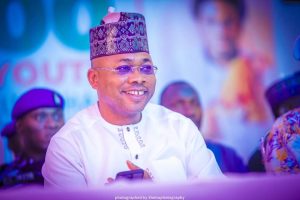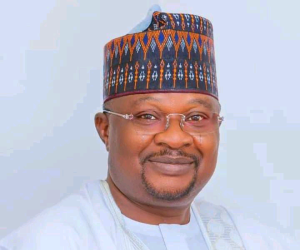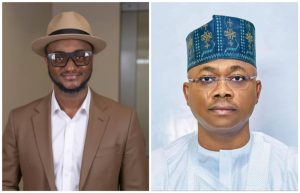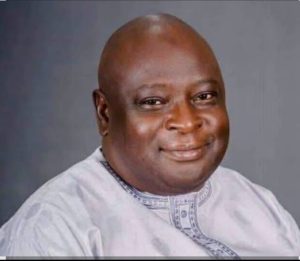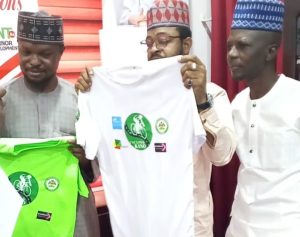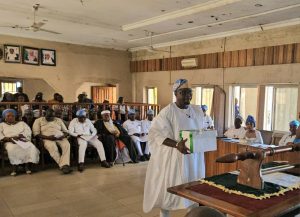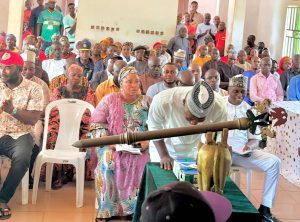The Odyssey Of Nigeria: Why Are We Where We Are? The British Or Ourselves?

Before the white men came, Nigeria was a land of many people and different cultures. There were great kingdoms like the Oyo-empire, Igala Kingdom, Benin Kingdom, etcetera; with their powerful armies and wealthy rulers. There were the hunter-gatherers of the North, the farmers of the West, and the fishermen of the Delta region.
Nigerians shared common bond no matter where they lived: they were proud of their heritage and their culture. They had their own languages, their own religions, and their own ways of life. They were not savages— as the white men would later claim, but a proud and civilized people.
Wait! Pause for a moment and take a deep breath. Now, let’s continue, as I would be addressing the situation of Nigeria before and after the coming of the white men, and why we are where we are today.
Well, even in the past, life in Nigeria was not always easy. There were wars and famines, but joy and laughter existed. Nigerians were a spirited people, and they knew how to celebrate life. They were a people of hope, and they believed that the future would be bright.
But, the white men came with their guns and their diseases, they also brought death and destruction to Nigeria. They enslaved the people and took them to their countries, where they were forced to work in the fields.
Catarrhine. Negro. Blackamore. Coon. Darkie: those were a few favourite phrases of many sadistic transatlantic slavers. They would enunciate those words in an incredibly vicious, derogatory and wild manner— solely to infuriate the blacks.
The punishments mounted on Nigerians, and other blacks, during the era of the slave trade was cruel and barbaric. The slavers, who were often Portuguese, Dutch, or British, would use a variety of methods to inflict pain and suffering on their captives, to keep them in line and prevent them from revolting. They took our men. Our women, and at times, children.
They would whip their captives, with a cat-o’-nine-tails, a whip with nine knotted cords that could easily tear the flesh. My people, Nigerians, would be whipped until they bled and their backs were raw. At times, they would chain my ancestors together and force them to walk for long distances, often in the hot sun.
In the words of the great writer, Chinua Achebe, “They were driven through the streets, like cattle, with shouts and jeers from the crowd. They were chained together, neck to neck, and the chain was so short that they could not put one foot before the other. If one man stumbled, they all stumbled. If one man fell, they all fell.”
Pause and reflect, Nigerians! Did the British think we were fools? In 1807, when they discovered new machines to do their labor, and when they became too afraid of black rebels, they abandoned the slave trade. They pretended it was for “humanity’s sake,” but we know the truth. So, gradually, the era of the slave trade came to an end.
Again, the white men still came to our land in search of gold and riches. This time around, they promised us a better future, but they only brought us pain and suffering. They took our land, our resources, and our freedom. They forced us to work in their mines and plantations, and they treated us like animals. We were beaten, humiliated, and killed. We were denied our culture and our identity. We were made to feel like we were inferior to the whites.
The clock ticked on, but the struggles continued. The white man’s boot was still on our necks, and we were his to exploit. We had no choice but to bend to his will.
But then, a spark of hope aroused. A new generation of leaders arose, men who refused to accept the status quo. They fought for our freedom, and they won.
The white man is gone now, but his legacy remains. It has been many years since their departure, yet, we are still impoverished, and we are still plagued by the problems there created.
The big question now, I ask you, dear reader is: why are we where we are now? Are we in this state due to the white man? Well, keep reading.
“The fault, dear Brutus, is not in our stars, but in ourselves.” – William Shakespeare, Julius Caesar. This line from Shakespeare’s play could well be applied to Nigeria today. For too long, we have blamed our underdevelopment on external forces, such as the British colonial rule. But the truth is, we are the ones who are holding ourselves back.
We have a mindset that is resistant to change. We are quick to blame others for our problems, but we are slow to take responsibility for ourselves. We are more interested in praying for miracles than we are in working hard. And we are more concerned with getting rich quick than we are with building a sustainable future for our country.
This mindset is evident in all aspects of our lives. In our education system, we are taught to memorize facts rather than to think critically. In our businesses, we are more interested in making quick profits than in investment. And in our politics, we are more interested in lining our own pockets than we are in serving the people.
Until we change our mindset, Nigeria will remain underdeveloped. We need to start thinking for ourselves and taking responsibilities for our actions. We need to be more willing to work hard and to sacrifice for the common good.
Dear Nigerians, in the words of John F Kenedy: “Ask not what your country can do for you – ask what you can do for your country.” Let us be more of producers than consumers—for Nigeria to be great, it requires our collective efforts. The change we seek begins with you and I.
I am Idris Musa (D-catalyst) and I am rooting for the betterment of Nigeria, my fatherland.

